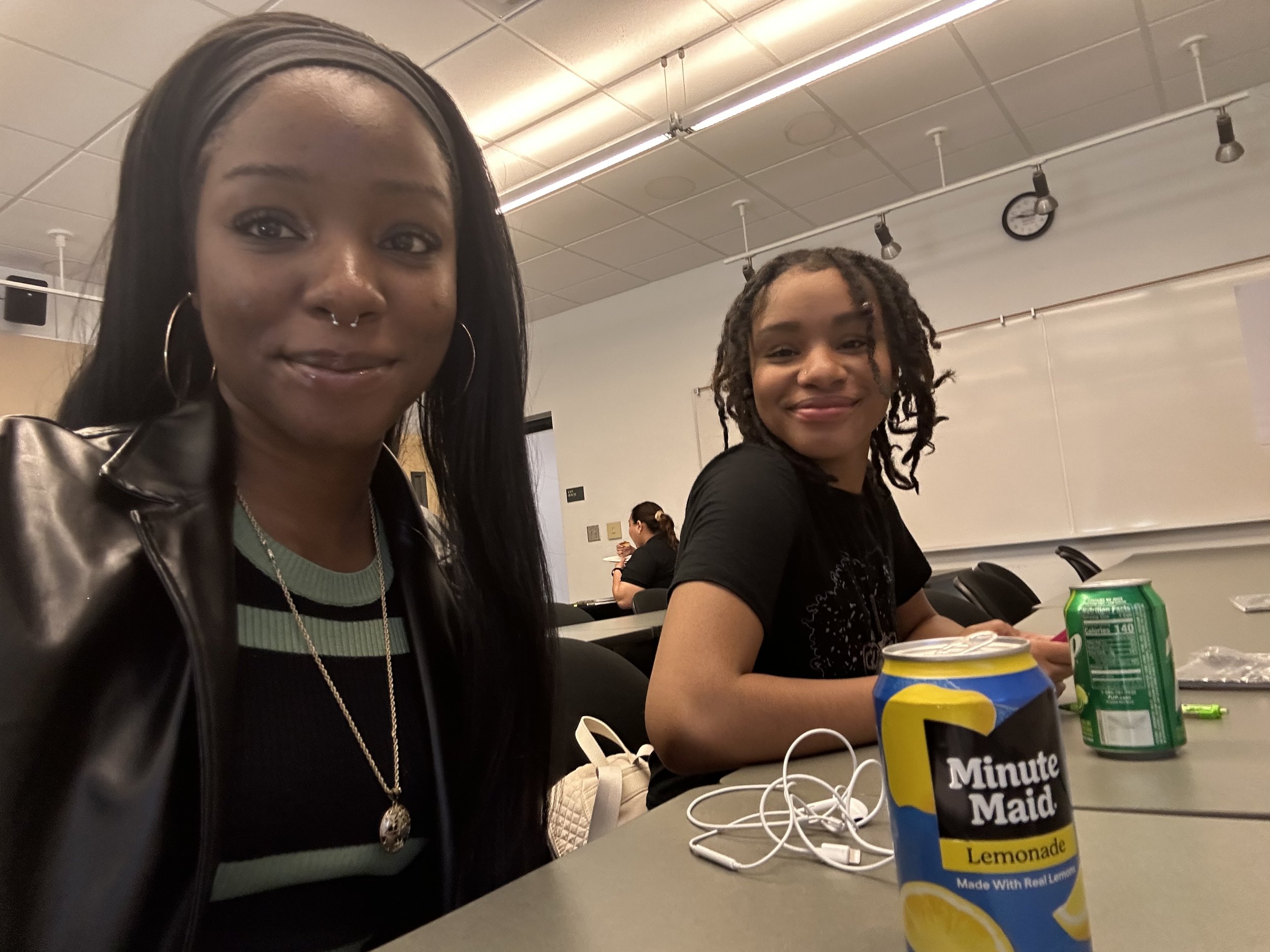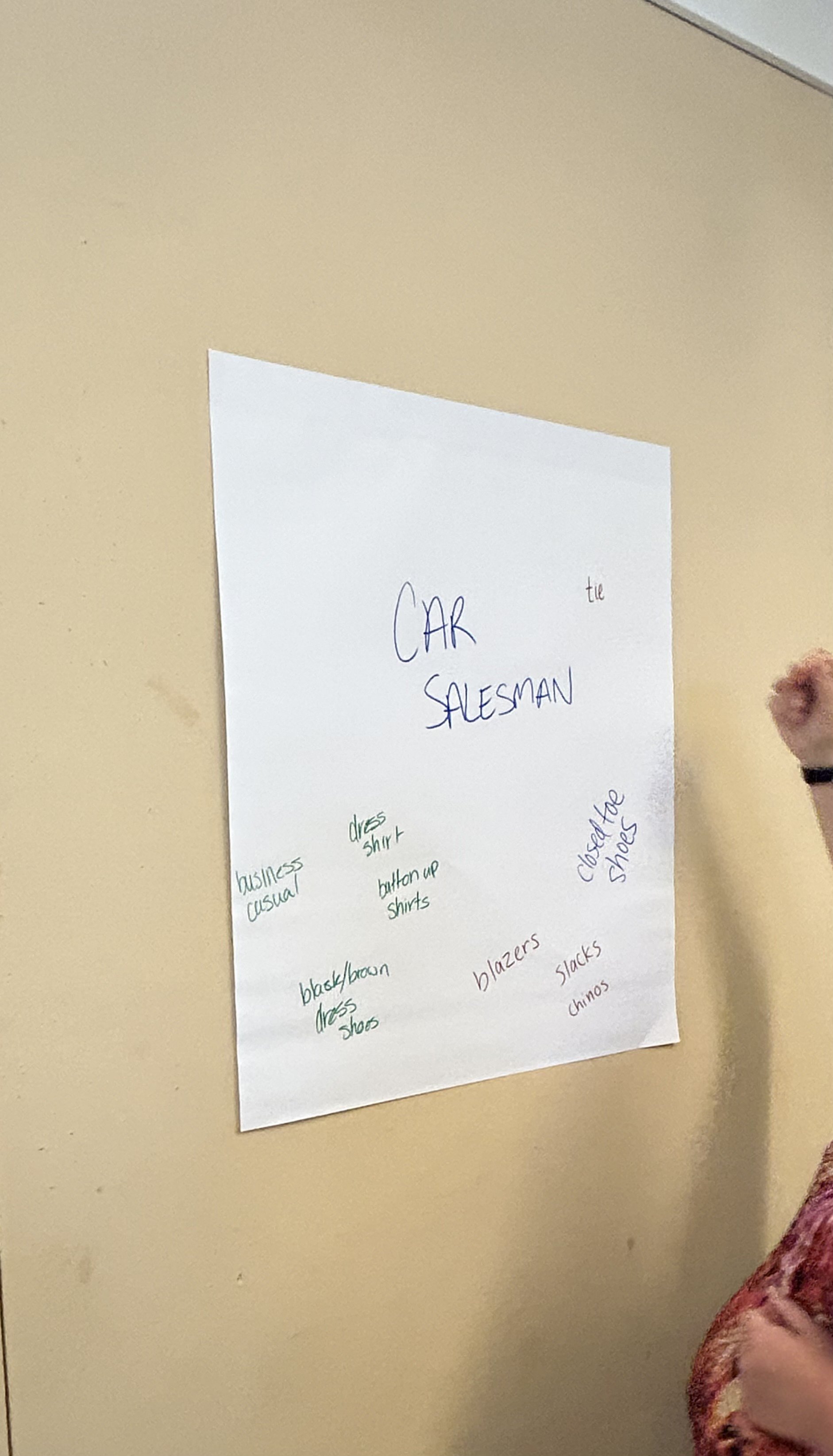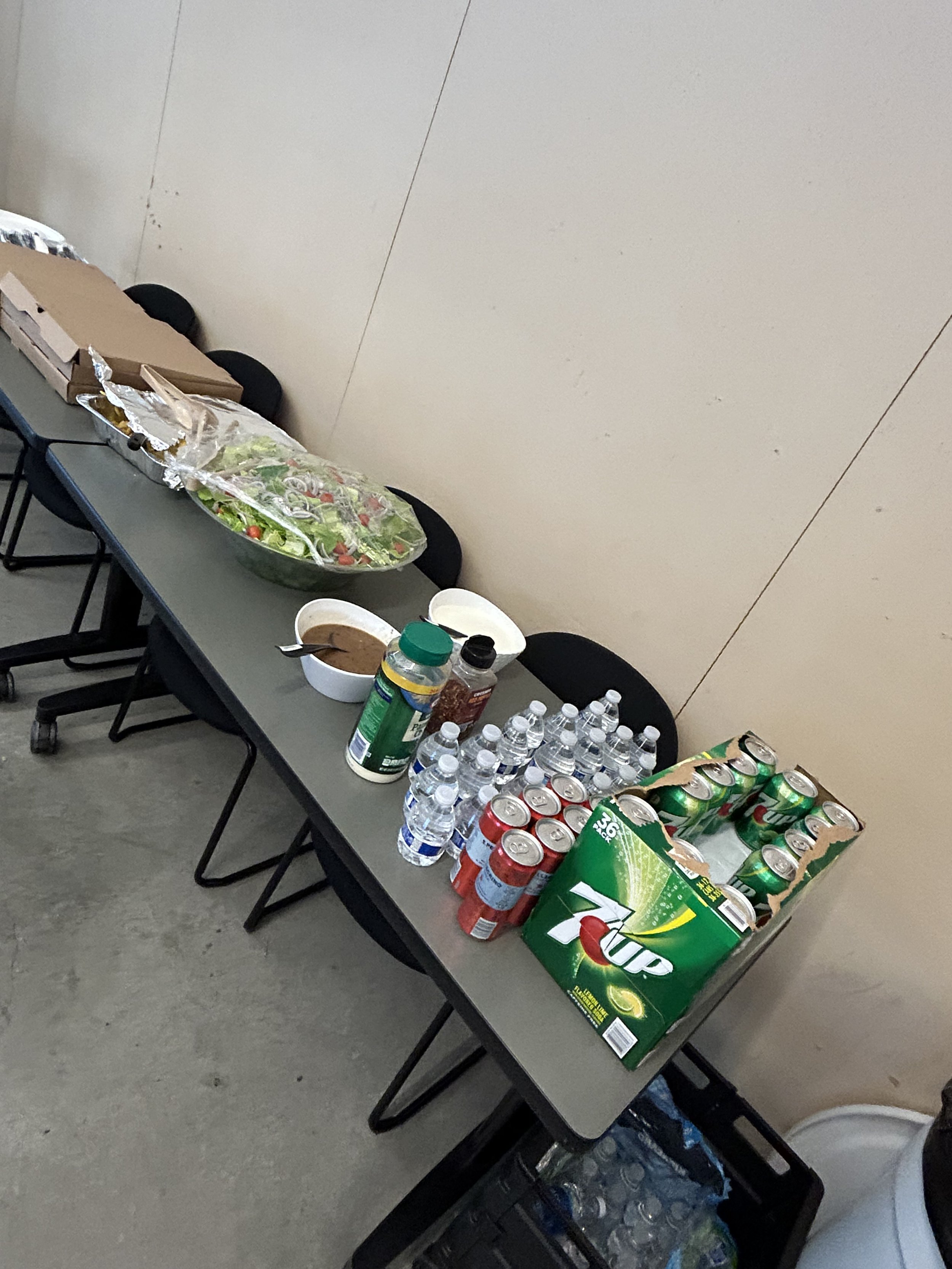PRISM career development workshop
By Kiya McClenton
Many young adults start their college years with confidence going into the workforce, but upon graduation, they realize they aren't as skilled in the job application and hiring process. I had the opportunity to learn more of these skills firsthand through the PRISM event Professionalism & Preparing for Job Interviews. This event was hosted by the Big Brothers and Big Sisters of Orange County & the Inland Empire on Thursday, April 18, 2024 at the Rancho Cucamonga Chaffey campus. I attended this event with my 19-year-old sister Kasara McClenton, who I felt was the perfect audience for the purpose of this event.
Upon entrance, we were happily greeted by one of three program leaders, Gisselle Barron, who was assisting attendees with sign-ins. The other program leaders soon introduced themselves as Nadifa Warren and Cesario Mora, with their own unique stories behind joining the Big Brothers and Big Sisters of Orange County & the Inland Empire. Ms. Warren explained that she went into this line of work after working as an after-school program leader for more than 17 years; after overseeing both workplace professionals and the youth, Ms. Warren was motivated to go into a line of work that shares these skills with both groups. Mr. Mora shared that after graduating from Cal State Fullerton, he felt motivated to give back to those who need resources and connections through his work. Delicious food was also provided for attendees to eat, which included: pizza, salad, macaroni & cheese, and multiple beverages.
The event began with the program leaders having all the attendees play a game of Kahoot answering one question: "In one word, what does professionalism in the workplace mean to you?"
People shared several answers, with Ms. Warren and Mr. Mora selecting three words that stood out to them and asking the people who chose them to explain. The first word was "ownership", which was explained as taking accountability for one's work, whether it be good or bad. The second word was "efficiency", defined as being attentive and striving to do work to the best of one's ability. The final word selected was "competitive", which includes taking the initiative and taking charge of work as a professional.
After the Kahoot session, the program leaders began explaining what exactly defines professionalism. As Ms.Warren explained, professionalism is beyond looking the part; it is also the behavior the individual carries within themselves. Having enthusiasm, motivation, being proactive, and being willing to learn are characteristics of professionalism in the workplace.
Although professionalism is more than just looks, appearance is an incredibly relevant factor to representation in the workplace. Mr. Mora explained that individuals want to make a great first impression and look well put together in a professional workplace because they are not only representing themselves but will also represent the company. To help attendees better understand what looks are appropriate in the workplace, the program leaders had them play two different games. The first game included splitting into groups and determining which outfits were appropriate for a hypothetical workplace through several slides and pictures.
The second game included the groups going to four different stations representing different professions: a receptionist, a car salesperson, a mayor and a therapist. Each group was directed to write as many pieces of clothing they felt were appropriate for each profession, and then rotate to the next profession until each group chose words for each one. Afterward, the program leaders went over each profession and explained whether the selected clothing was appropriate or not. These games allowed attendees to better understand what clothing is appropriate for each work setting, as well as helping individuals learn how to communicate and work with a team.
The next topic focused on professional communication. In the workplace, there are several forms of communication with specific purposes; these include verbal communication, digital communication, and body language. The program leaders went on to show us video examples of positive and negative communication for each form. Throughout these examples, the audience learned multiple ways to professionally communicate with their colleagues and bosses.
Firstly, a professional always wants to focus on the topic of the conversation and engage in the topic. Having strong eye contact is an important aspect of body language because it shows the person who is talking that their information is being received and acknowledged. Next, the individual must have open communication and be clear with their needs. Making their point clear helps to avoid confusing conversations in the workplace. With digital communication like emails, the individual must introduce themselves as well as acknowledging the recipient of the email. The individual must also use proper grammar and punctuation; a professional email should not sound like a text message to a friend. Today, professionals should also refrain from depending on AI generators like ChatGPT because it makes their communication unauthentic. Finally, individuals always want to reply to emails, whether it be a simple yes or no answer, because it is unprofessional to leave a conversation open/unresolved.
The program leaders went on to explain the steps it takes to prepare for the interview. When preparing to go to an interview, a professional always wants to research the company and their background. They should also have some follow-up questions for the supervisor conducting the interview. Familiarizing themselves and asking questions about the company helps to better understand what the company is looking for in the interview. A possible hire should also bring multiple copies of their resume to an interview to not only show their preparation but also their work experience.
Mr. Mora and Ms.Warren proceeded to show attendees how to answer many commonly asked questions in interviews, such as: "Tell me about yourself", "What are your strengths and weaknesses?", and "Can you explain the gap in your resume?".
When providing information to the supervisor, Mr. Mora explained that interviewees should use an "Elevator Pitch" and the Star Method. An Elevator Pitch is a method that focuses on the most critical information about the individual's work experience, starting with their introduction/background, then career goals, and finally a closing statement; this pitch should take no more than 1 minute to share. The Star Method focuses on specific examples of situations the professional has experienced in the workplace and what they learned from it. This method starts with the interviewee explaining the situation, what task needed to be done, the action taken to resolve it, and the result of the task.
When discussing strengths and weaknesses, an interviewee always wants to express their workplace achievements, as well as acknowledging where they've improved in the workplace. Interviewees should be genuine about their strengths and keep it related to the job. With weaknesses, interviewees should be honest about where they think they should improve and focus on their growth in the workplace.
Lastly, to explain gaps in a resume, being positive and honest is important. A fellow attendee stated that gaps in a resume can represent the time an interviewee took to work on themselves. Mr. Mora and Ms. Warren emphasized this idea, acknowledging the importance of taking time for oneself in order to perform to the best of their abilities in the workplace.
As the event came to a close, Mr. Mora and Ms. Warren explained the company's workplace mentoring program that further teaches skills in professionalism, interviews, and time management. This 6-session program involves Zoom meetings that take place on the first Thursday of every month for about an hour. The program also matches students to a mentor from the Citizens Business Bank to provide support and guidance. To sign up, students must be enrolled at Chaffey College or any other partnering institution.
Overall, this event was extremely informative and beneficial to learning skills to carry into job interviews and the workplace. Although I've had many successful interviews and jobs since starting my work journey at 17, the PRISM event Professionalism & Preparing for Job Interviews taught me several new techniques that make me feel even more confident and prepared for moving forward in my career.



